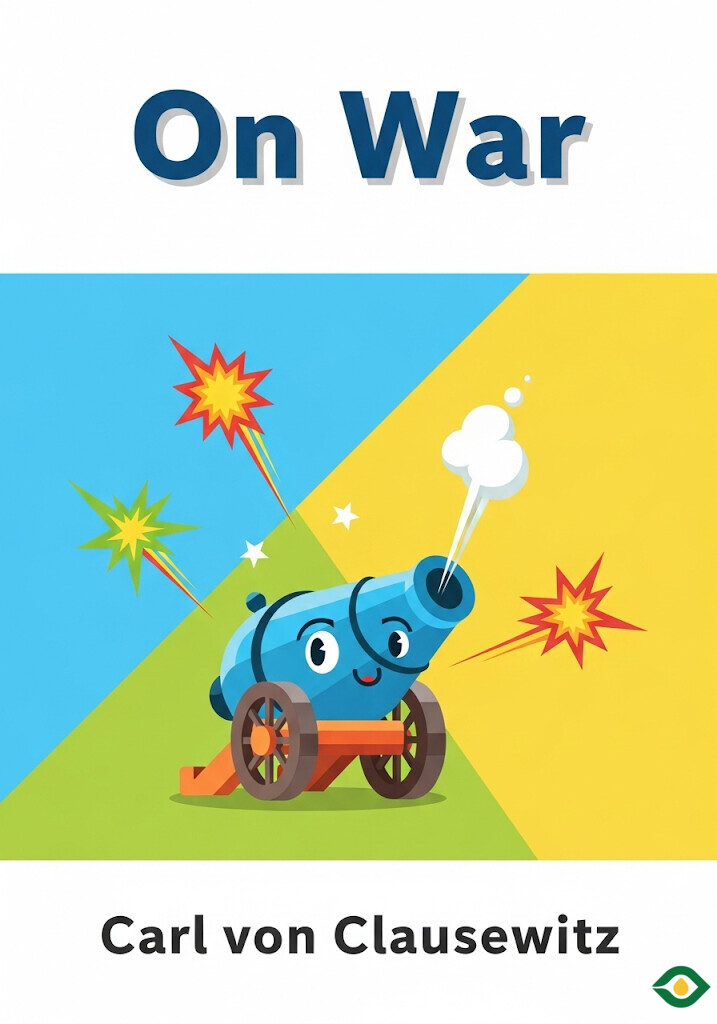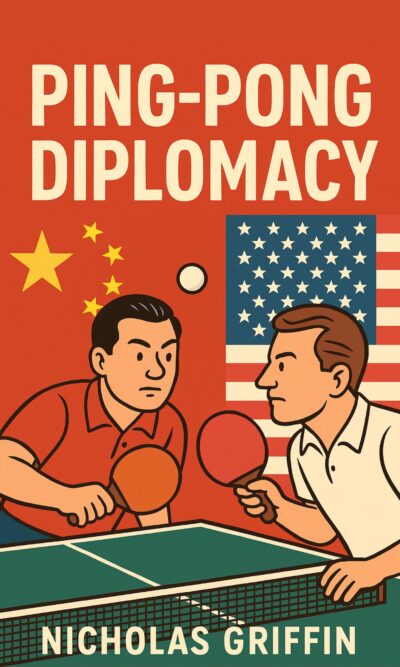Description
War has always fascinated, disturbed, and challenged human beings. Carl von Clausewitz’s On War remains one of the most famous attempts to explain what war is, how it works, and why it matters. Although written in the nineteenth century, many of its ideas still feel relevant today. The book is not a simple manual but a deep exploration of war as a human and political activity. Clausewitz draws from his experiences as a soldier and from history, trying to capture truths that go beyond any single battle.
At its core, Clausewitz argues that war is a clash of wills. It is like a duel or a wrestling match, but on a much larger scale. Each side tries to force the other into submission. The simplest way to do this is to disarm the enemy, making them unable to continue fighting. This, he explains, is the real goal of war: not glory, not honor, but breaking the opponent’s capacity to resist.
Violence is unavoidable in war. While some people dream of “bloodless wars,” Clausewitz is skeptical. He argues that if war is taken up as a serious act, then it will always involve force to the fullest extent. Moderation in war, he suggests, is dangerous. If one side holds back, the other may strike harder and win. The brutal truth, he believes, is that only by using maximum effort can one hope to achieve success.
But war is not just about weapons and battles. It is also about uncertainty. Clausewitz famously describes the “fog of war” — the lack of clear information, the confusion, the mistakes that happen because nobody knows exactly what the enemy is doing or what will happen next. This fog makes war unpredictable, full of chance and surprise. Generals must make decisions without full knowledge. This is why Clausewitz insists that courage, presence of mind, and steady judgment are the qualities of great commanders. A leader must stay calm under pressure, act boldly when needed, and not be paralyzed by doubt.
He also explains that war is not an isolated event. Wars grow out of politics, rivalries, and long histories. Every battle is connected to what came before and what comes after. That means it is wrong to judge a general’s choices by looking only at one battle in isolation. For example, later historians might think a move was reckless or brilliant, but at the time, the general was acting with limited knowledge and under political constraints. War, therefore, cannot be understood by studying battles as if they were puzzles with clear solutions. They must be seen in context.
Another important part of Clausewitz’s thought is the difference between tactics and strategy. Tactics are the practical skills and preparations of the army — training soldiers, arranging formations, building camps, or deciding where to place reserves. These can be studied like a science. Strategy, however, is about how battles fit into the larger purpose of the war. Strategy is more like an art because it must adapt to circumstances, surprises, and the character of both leaders and soldiers. There is no single formula for victory. A brilliant strategy in one war might fail in another.
Even the best strategy, though, cannot succeed without what Clausewitz calls “military virtue.” By this he means the spirit, discipline, and perseverance of the soldiers themselves. A strong army is not only made of weapons but of people who understand their role, trust each other, and endure hardship together. An army without morale cannot win, no matter how clever the strategy is. He highlights perseverance in particular: the ability to keep fighting, marching, and suffering longer than the opponent until they collapse.
Boldness is another quality Clausewitz praises. Boldness does not mean blind bravery, but the willingness to act decisively when an opportunity arises. Sometimes a daring move can change the course of a war. However, boldness must be matched with judgment, since reckless risks can destroy an army. The best leaders know when to be bold and when to be cautious.
Clausewitz also writes about stratagems — the tricks and deceptions of war. Surprise attacks, feints, and clever maneuvers can give a weaker army an advantage. A well-timed deception can make the enemy move into a trap or reveal their weaknesses. Yet, like boldness, these tricks depend on timing and an understanding of human psychology. They are not guaranteed, but when successful, they can turn the tide.
In his later sections, Clausewitz looks at battles themselves. He emphasizes that victory is not only measured in numbers of soldiers killed or cannons captured. A battle is truly won when the enemy’s spirit is broken — when their morale and confidence collapse, and they admit defeat. Destroying the enemy’s will to fight can be as important as destroying their physical strength. Night attacks, flank maneuvers, or constant bombardments can wear down morale, keeping the enemy tired, fearful, and uncertain.
Even though On War was left unfinished when Clausewitz died, it ends with reflections that remain striking. He asks whether a bloodless war could ever exist, and he concludes no. War by its nature involves violence and suffering. If one side chooses to fight with limited force, eventually an opponent with greater violence will win. It is a grim conclusion, but for Clausewitz, an honest one.
Taken together, Clausewitz’s ideas show war as something both simple and complex. It is simple because its basic goal — disarming the enemy — is straightforward. Yet it is complex because the path to that goal is full of uncertainty, chance, moral choices, and human weakness. Success requires not only weapons but also courage, judgment, discipline, and spirit. Strategy must adapt to circumstances, and victory often comes from breaking morale as much as breaking armies.
In the end, On War is not a handbook that tells you exactly how to win battles. Instead, it is a meditation on the nature of conflict itself. Clausewitz’s voice remains relevant because he reminds us that war is never just about soldiers and guns. It is about human beings, their decisions, their emotions, and their willpower. That is why war continues to be both terrible and fascinating, and why his insights continue to echo even centuries later.





